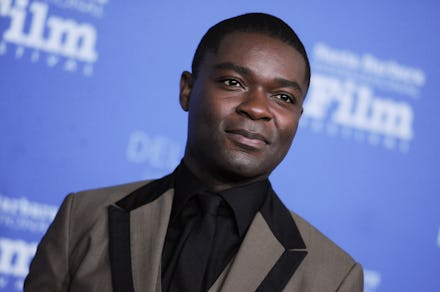One Quote Exposes a Disturbing Truth About How Hollywood Treats Black Actors

The Academy Awards are having their whitest year since 2011, with all 20 of the acting slots filled by Caucasian performers for only the fourth time in 19 years.
The most talked-about snub has been Selma, the Martin Luther King Jr. biopic starring David Oyelowo and directed by Ava DuVernay, which received just two nominations. But this is about far more than one missed opportunity.
By now even the staunchest Oscar defender would have trouble defending the awards as a meritocratic reflection of talent — the aggressive (and pricey) campaigns needed to get nominated suggests they're more politics than anything. During a Q-and-A at this week's Santa Barbara International Film Festival, Oyelowo shared some especially piercing thoughts on the roles black people get rewarded for playing in films, and how they reflect a pattern of racism in Hollywood that hasn't changed for decades.
"Generally speaking," he told his audience, "we as black people have been celebrated more for when we are subservient, when we are not being leaders or kings or being at the center of our own narrative, driving it forward."
His point is supported by history: More than half of the 15 black winners since 1940 (when Hattie McDaniel became the first black winner, at a segregated ceremony, for Best Supporting Actress in Gone With the Wind) have played servants, slaves or characters whose main duty was to assist a white protagonist.
And that's if they win at all. Fifteen victories out of 87 ceremonies is a shoddy record, and it reflects the limited opportunities for, and even less frequent recognition of, black talent in the industry.
Agency is another issue altogether. As Oyelowo points out, when black actors do get opportunities, then their stories are still told through the eyes of a "white person who holds [their] hands through their own narrative." The power dynamic remains in favor of white perspective and control.
So the issue becomes not only whether black people can find work in Hollywood, or whether their films get made, or if they get awarded for them. It's whether they get to tell their own stories, and whether those stories are centered around them. Until that happens, the disparity of this year's Oscar nominations will continue.
Oyelowo knows this. And if Hollywood executives hope to be as committed to diversity as a 2015 America deserves, they should really listen to him.
h/t Colorlines